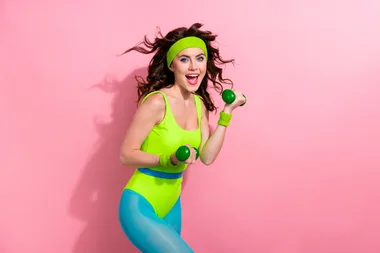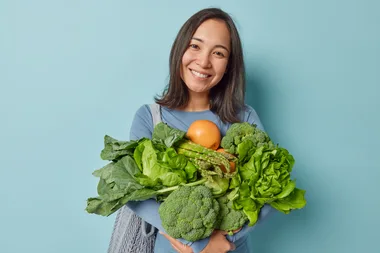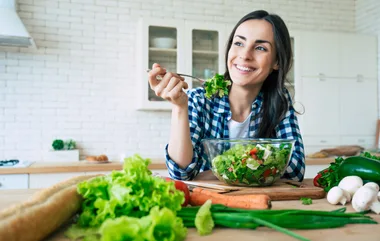I am extremely keen to follow your weekly diet plan to help get in shape for summer, yet I am a vegetarian. I was wondering if you have a vegetarian option for that plan or could give me some good food ideas to substitute for the meat recipes? I don’t eat seafood or eggs so this makes things a bit tricky! A mistake with a lot of vegetarians is not eating healthily but I would love somewhere to start. Help!
Hannah, 19 WA
Dear Hanna,
You are quite right, many vegetarians eat very badly. Their diet tends to include too much fat and carbohydrate from convenience foods like pasta, toast, cakes and cheese (for dairy-eating vegetarians) and not enough protein. As protein is essential for repairing and replacing body cells and many of the nutrients found in meat help supply iron for energy, zinc for wound repair and B vitamins for nervous function, it’s really important you get these nutrients elsewhere. Even with a great diet, a non-meat/fish eater would still benefit from a broad spectrum multivitamin.
Whole grain cereals are carbohydrates and contain more B vitamins and iron than their white counterparts, so always choose wholegrain breakfast cereals like muesli, whole grain bread and wholemeal pasta. Try out some of the less common but nutritionally superb other grains, like bulgar, freekeh, barley, quinoa and millet.
Legumes, like chickpeas, kidney beans, lentils and baked beans, when served with one of these wholegrain carbohydrates form a complete protein. They are also very high in fibre, low in saturated fat and are indeed true superfoods. Lentil burgers, chickpea falafels, hummus dip and chili beans are all delicious and wonderful protein foods. Look for them in health food stores or the health section of the supermarket.
One of the best plant proteins is tofu — bland in taste, but when flavoured well it provides a fabulous low-fat protein and is excellent added to stir fries or made into burgers.
Nuts are a great source of protein but high in fat (albeit good fat). Use them in your daily intake but restrict the quantity as they are high in kilojoules.
You don’t say whether you eat cheese or not. Dairy foods are great for calcium but can also be high in fat or kilojoules. Fat-free yoghurt, sweetened naturally with fruit, is a good way to boost calcium requirements and protein without loading up on kilojoules. If you do eat cheese, restrict the portion size to 30 grams (a small piece about the size of a small matchbox). For non-dairy eaters, there are many soy alternatives available.
Soy milks are usually made with added sugar and vegetable oil, so compare brands and choose the one with fewer kilojoules per serve, preferably fortified with added nutrients. These have added calcium and iron and are useful to help boost these daily required nutrients.
Vegetarian or not, the same rule of five serves of vegetables and two serves of fruit still applies.
At 19, you are in the classic age group where snacking and eating on the run is commonplace, so minimise snacking by sitting down to eat three meals a day and one snack mid-afternoon and never eat on the run.










